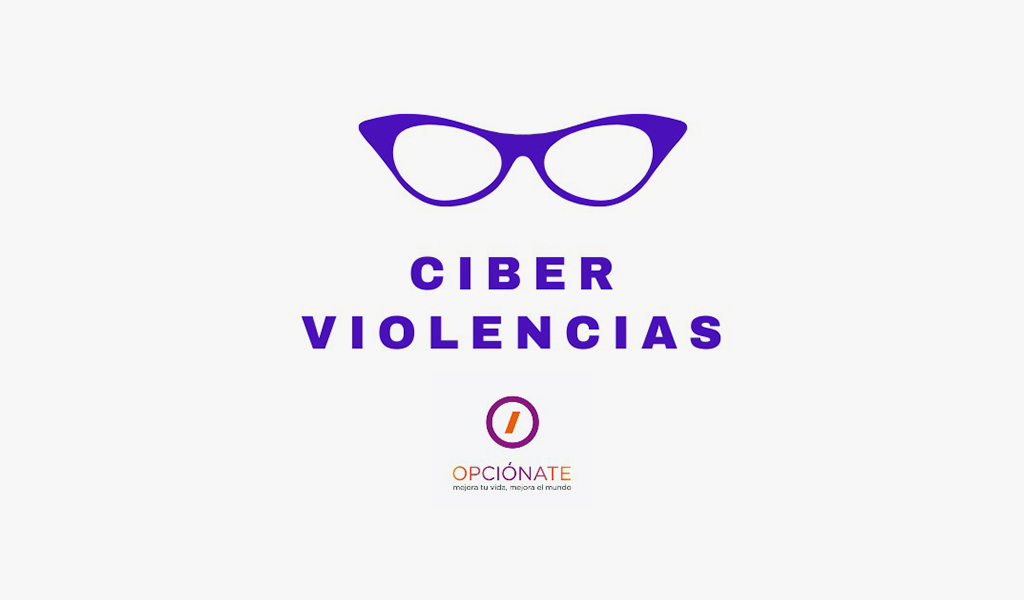Opciónate’s webinar on gender-based cyber violence focused on the importance of creating networks to build resilience from within
The conclusions of the ‘Ciberviolencias machistas [Gender-based cyber violence]’ webinar hosted by Opciónate with the support of the Las Palmas de Gran Canaria City Council point out to the need for visibility, and the gathering of data to produce statistics and achieve better training and information. They also stressed the importance of improving a very fragmented and inaccessible legal framework, allocating more specialized resources to assistance and support and, above all, learning from good practices and creating cyberfeminist networks to raise awareness and build resilience from within.
The event held from 17 to 19 November 2020 was attended by specialists with significant backgrounds in the investigation of male sexist cyber violence. At its opening in Casa de Colón, Las Palmas de Gran Canaria Town Councillor for Equality and Diversity María del Carmen Reyes stated that “What is not named does not exist”, hence the importance of bringing to light research that yield devastating results, as online violence against women and girls is widespread and seriously alters their daily lives when it comes to the use of technologies.
Andrea Momoitio from Píkara Magazine explained that “taking the feminist discourse online has been an important landmark and, as any transformation initiative, has been received with hostility”, it represents therefore a response to the existing gender codes, it is only the setting where sexist violence is exercised that has changed.
The webinar also highlighted that the greater the intersectionality of the discourse, the more the violence that is exercised increases exponentially and the more radical the aggressions become. Special attention must also be drawn to self-censorship, the most common consequences among women who have been assaulted and which also leads to them discontinuing the use of the relations, information and communication technologies (TRIC) as referred to by Estíbaliz Linares, PhD in the Human Rights Program: Ethical, Social and Political Challenges by the University of Deusto, in order to better take care of ourselves and live a violence-free life.
For her part, criminal lawyer Laia Serra mentioned “digital terror” as a control mechanism that also takes over online tools, making victims look guilty to the collective imaginary. This brings a feeling of paralyzing helplessness, not being able to act in the absence of resources for care and reparation, together with the inability to remove content, which will remain online permanently. She also expanded the focus by making reference to platform operators and the need to call on them to adopt the necessary protection measures.
The results of the survey on online gender-based cyberviolence presented by Eva Cruells, co-founder of Donestech, analyses the main response strategies adopted by women victims of cyberviolence and their effectiveness. Individual online control and care ranked among the most effective, whereas documenting or investigating the facts, as well as reporting to law enforcement authorities or online platforms, are perceived as being less effective or an aggravating factor.
Taking care of ourselves, either collectively or individually, is therefore what really contributes to reparation and support. External measures of protection, such as care services or state and legal mechanisms fail to provide adequate solutions, with a fragmented and slow legislation that make judicial measures hard to fit in. Cruells further advanced that collective movement Donestech in collaboration with Laia Serra are working towards a friendlier legal framework that will improve access to reporting acts of male sexist cyber-violence.
Also, as pointed out by member of the UN technical team Orlagh McCann, the right of women to a life free of violence in any its forms as a human right is recognized in the 2011 Istanbul Convention of the Council of Europe, although work remains to be done by governments, which must be made aware of the need to design and implement public policies for such purpose.
A summary of all the presentations in the form of a factsheet will soon be available. If you are interested in the full presentations, please contact us at info@opcionate.com.


